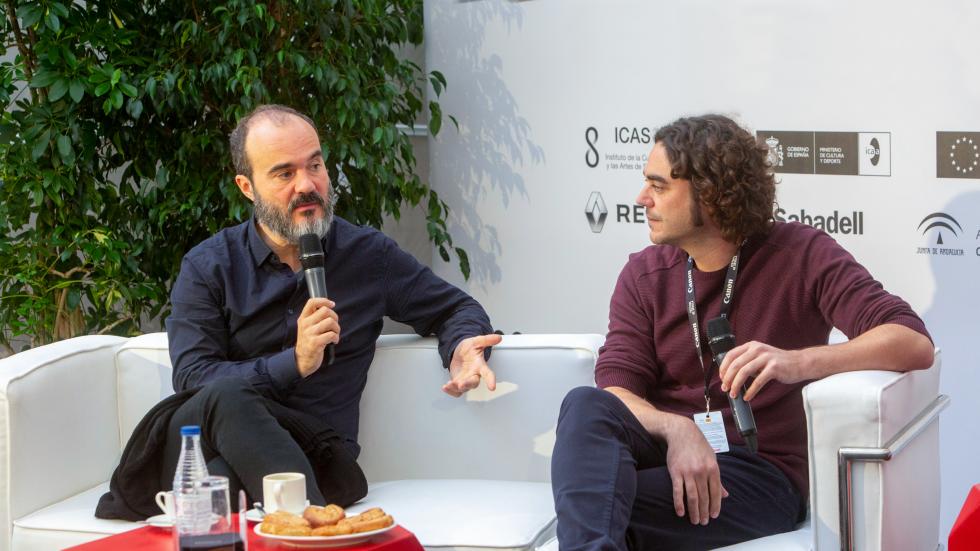In Las Nuevas Olas No Ficción section, the journalist and director of the Punto de Vista Festival, Oskar Alegría (Pamplona, 1973) has released some details of the filming of his latest work 'Zumiriki', a story that quickly refersto significant references such as Thoreau's testimony in 'Walden'.
"I was living in a small space, a small cabin with only a window, which was actually a mirror, and where I knew thatthe trip I was an inner journey." For this type of experience "you never travel alone, you are always accompanied by all the fleshand bones that inhabit your memories", said the Navarrese. The Basque is in that personal imagination, in fact 'Zumiriki' means "island in the middle of the river". This language captivated him since he was a child, "in the summers on the river, I discovered that my uncle spoke in Basque on the opposite shore with a wild-looking man who fascinated my faith and made me connectwiththat language."
In the case of the filmmaker Alejandro Salgado (Los Palacios, Seville, 1982), his film 'Barzakh', "more than a trip, is a wanderingwith the coast of Melilla as a stage". In Arabic, the word 'barzaj' means an intermediate state between two things and in the Koran is the interval between death and the day of doomsday. Precisely, the limbo of a night, in front of an uncertain maritime horizon, a group of young people, designated as "menas", are waiting in Melilla for the time to reach Europe. Salgado also wanted to mention especially one of his references in the film. "Borges' tale 'The Immortal', in so much detail in the description, has been a constant reference for drawing up the visual imagination," he said.
To shoot 'Zumiriki', Alegría went four months alone to the woods, looking for a reconnection with its roots and nature. A castaway Crusoe from the "zumiriki" of the title, which means in Basque 'island in the middle of a river', in which the director expects small rituals, discoveries, memories and a particular sense of humour. An imaginative and inspiring film to mediate the life that was received with anovation in Venice.
For his part, Salgado, with a group of young people (unaccompanied foreign minors), waiting in Melilla for the time to reach Europe. In his film, the Sevillian director shows a collection of moments electrified by hope, the dead times (between longing and the future) of young people of indomitable freedom towhich the Sevillian Alejandro Salgado (Bolingo, the forest of love) portrays with a strange mix of truth and poetry.







